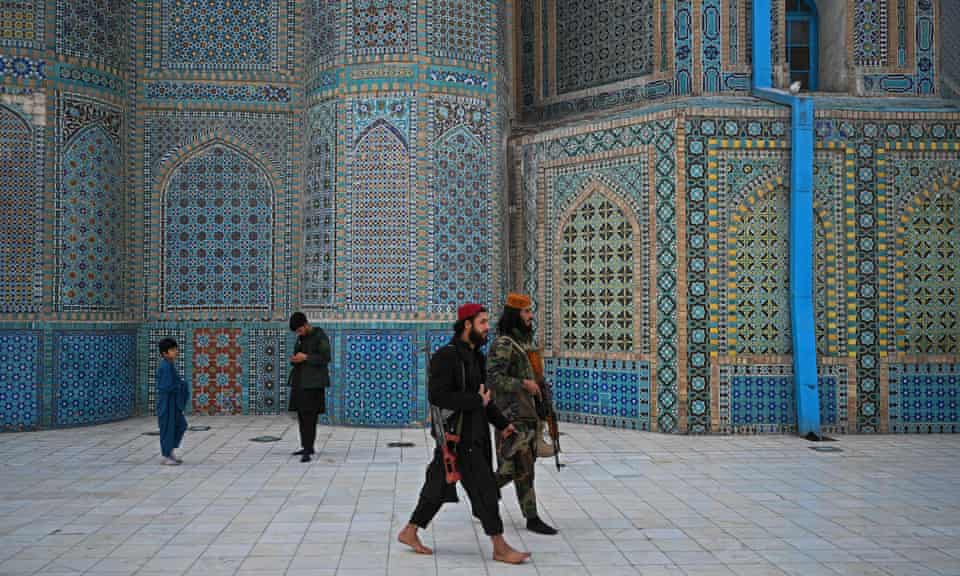
Mazar-i-Sharif was once the most secular, liberal of Afghan cities. But 20 years of corruption and misrule left it ripe for retaking by the Taliban. Will anything be different this time?
Throughout the day, men – and there were only men – entered the room, squatting on the floor in front of Abu Idrees. In hushed voices, they pleaded their cases, answered summons or pledged their undying support to the Taliban regime. In theory, anyone could come and demand an audience, something unheard of under the previous government, when people had to pay bribes and pull strings to see even a low-ranking police officer, let alone the police chief himself.
On the surface, it seemed little had changed in Mazar since the Taliban captured the city in mid-August. Taliban fighters, piled on the back of army and police pickup trucks, patrolled the city, while the new white flags of the Taliban emblazoned car windshields and flew from the roofs of motorised rickshaws, but in general, life went on uninterrupted. Local people still flocked to the historic blue-tiled shrine at the heart of the city; they still thronged at night around cars selling Mazar’s famous grapes, tomatoes and white aubergines; trucks laden with coal and onions still headed to the Uzbekistan border, about 50 miles north of the city, while those bringing UN food aid drove in the other direction. Even the large mural at the entrance to the city depicting the late Ahmad Shah Massoud, a commander revered for his role in resisting the Taliban in the 90s, was still standing. Around the city, girls’ schools were quietly reopening, defying the leadership in Kabul, which had ordered them shut. But under the surface, changes were unfolding in Mazar.
Now the severe economic crisis that followed the Taliban takeover has put half of the population of Afghanistan at risk of famine, according to the UN. When the warlords who controlled the region and their business associates fled to Uzbekistan, the UAE and Turkey, they left behind government employees who had not received their meagre salaries for months, and were forced to sell their possessions to feed their hungry families.
Most of the cases brought to the police chief that October morning concerned former government employees, who complained that the Taliban had confiscated their property when they entered the city. One group of men wanted to settle a case that had been languishing in government courts for months, mired in bureaucracy and demands for bribes. A man representing the Union of the Owners of Wedding Halls complained that the Taliban were intimidating guests with their habit of inspecting halls during wedding receptions to make sure that there was no music.
Every so often, Taliban fighters and well-wishers came in to greet their old comrades, who were splayed on sofas around the room. The loudest greetings were reserved for one of Abu Idrees’s commanders, a young man named Jawhar, who had big smiling eyes and brown curly hair. Seated to the right of his boss, with one foot on the sofa, Jawhar was the head of the Mazar branch of the Amr-bil-Maruf, the Taliban’s feared religious and moral police.
Abu Idrees listened intently, examining the plaintiffs as he curled a lock of his beard around his index finger again and again. Occasionally, a distant look of boredom flickered across his face, which had been hardened by a decade of fighting in the mountains and hills surrounding Mazar. When he issued his verdicts – which were not open to appeal – he spoke in short, rapid sentences. His verdicts were based on the Taliban’s crude justice system, a mixture of tribal custom and ultra-conservative interpretations of Islamic law.
Towards the end of the day, an old man with a close-trimmed white beard and a colourful traditional Uzbek cap squatted on the floor before the police chief. He said his son had disappeared on his way home from Kabul, after he was stopped at a Taliban checkpoint.
Abu Idrees picked up a radio set and called one of his commanders, asking about the missing young man. After a few more calls, the reply of one commander came crackling through the radio set: the young man had been detained after Taliban fighters searched his car and found he was carrying bottles of alcohol.
“Just judge him according to the Sharia, please,” the father pleaded.
“Don’t worry, we won’t kill him,” answered Abu Idrees with a mischievous smile. “He will stay in detention while we conduct a criminal investigation, and you will be informed of our decision.”
Mazar, in the 1990s, was the most secular, socially liberal of Afghan cities. In the first two decades of the 21st century, it was dominated by warlords whose militias had defeated the Taliban. During this time, money surged into the city. And yet, last August, Mazar fell to the Taliban even before cities in the Taliban’s southern heartland, such as Kandahar. The reason, in large part, was local anger at the way their city had been run in the previous 20 years.
After their victory against the Taliban in 2001, with the support of the Americans, local warlords such as Abdul Rashid Dostum and Atta Muhammad Noor, and other militia commanders responsible for the murderous anarchy of the civil war, were to play a significant role in the new democratic Afghanistan. They were given immunity from prosecution for their alleged human rights abuses and war crimes, and the opportunity to enrich themselves from the immense inrush of foreign aid. After he became governor in 2004, Atta proceeded to run Mazar as his fief for the next 16 years. In time, the warlords’ greed and corruption would prove to be the undoing of the city and the country. Nothing would prove a more effective recruitment tool for the Taliban.
In these years after the fall of the Taliban, Mazar’s economy boomed thanks to the flow of foreign aid, which in turn fuelled a huge imports business, aided by the secure local environment. After late 2011, when Nato began using the northern route to resupply its troops in Afghanistan, almost half of Afghanistan’s imports entered through the border crossings north of Mazar. The city became a major commercial and transportation hub, with a constant stream of trucks hung with swinging bells and elaborate coloured decorations transporting goods between central Asia and Afghanistan.
Atta was celebrated by the international community as a model governor, a strongman running a stable and prosperous region. The truth, according to numerous sources in Mazar, was far less flattering. Atta’s allies and family dominated government jobs, as well as police and army posts in the city and the larger provinces. A man who I will call Babak, who had been one of Atta’s commanders, told me of the corruption he witnessed in these years. “The political parties were a mess,” he told me. “Every leader or minister had their team working for their financial benefit. The generals did not care about the public, the common people were insignificant for them. The peace and prosperity of this nation was not even important for them. However, former commanders like myself, or those favoured by the warlords, would be guaranteed good jobs and material reward.”
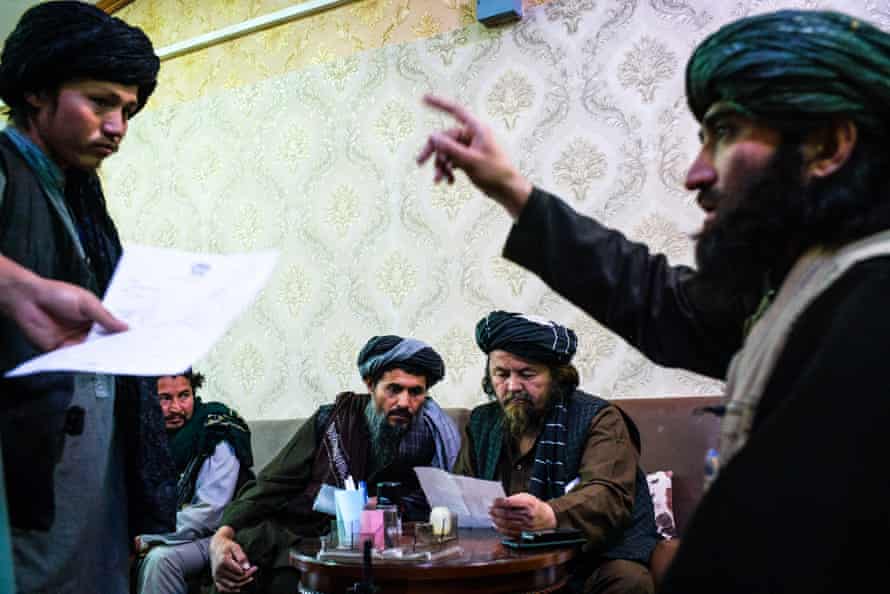
Atta and his cronies would siphon money from government contracts for building and infrastructure projects, extort a percentage of profits from thriving businesses, and levy unofficial taxes on cross-border trade. “There was not a single business that didn’t pay him a cut,” one businessman in Mazar told me.
One former police officer drove me to the main checkpoint in the entrance of Mazar, where two Taliban fighters stood directing the flow of traffic. He said that during the former government’s time, the officer in charge of that checkpoint had to pay a daily “rent” of $1,000 a day to his commanders. The officer would then charge every passing truck a certain fee and make a profit. Corruption touched almost every aspect of day-to-day life of the city.
As a young man in the 90s, Abu Idrees had been drawn to the teachings of the Taliban. He admired what he saw as their attempts to impose order on a country ravaged by civil war, and to put an end to the rule of the warlords who had corrupted the ideals of jihad against the Soviets and turned into venal thugs. For three years prior to the American invasion, he served in the Taliban’s army in Mazar, but he never rose in the ranks, for he was an ethnic Turkmen, and the Taliban were – and still are – based in the Pashtun heartland, with commanders drawn mainly from the clans of Kandahar and the mountainous regions bordering Pakistan.(A few members of the other ethnic groups – Tajiks, Turkmens and Uzbeks – joined the movement when it first came to power in the 90s, especially in the north, where the fighting was fuelled by racial hatred and ethnic massacres took place between the different communities under the Taliban flag.)
After the fall of the Taliban in November 2001, Abu Idrees fled the country, eventually settling in the Pakistani city of Quetta, where the Taliban leadership would later relocate. Defeated and demoralised, he joined one of the Taliban madrassas there, and spent the next decade living as a refugee, studying the Qur’an and the life and sayings of the prophet, under the instruction of his Taliban teachers, while scraping a living from day to day.
In the years after Abu Idrees fled to Pakistan, the Taliban who remained in Afghanistan were banned from involvement in the new Afghan government. This transitional period was dominated by former warlords who had supported the US military effort, and now had little difficulty in manipulating their new US allies to achieve their own ends. In the south and the east of the country, CIA and special forces teams hunting for Bin Laden and al-Qaida operatives expanded their target lists to include former Taliban, at the instigation of warlords and local strongmen who were settling their own feuds. In these first few years, the remaining Taliban were fighting a rearguard action for self-preservation, but over time, as they gathered strength, they coalesced into more aggressive fighting cells, which in turn evolved into an organised insurgency.
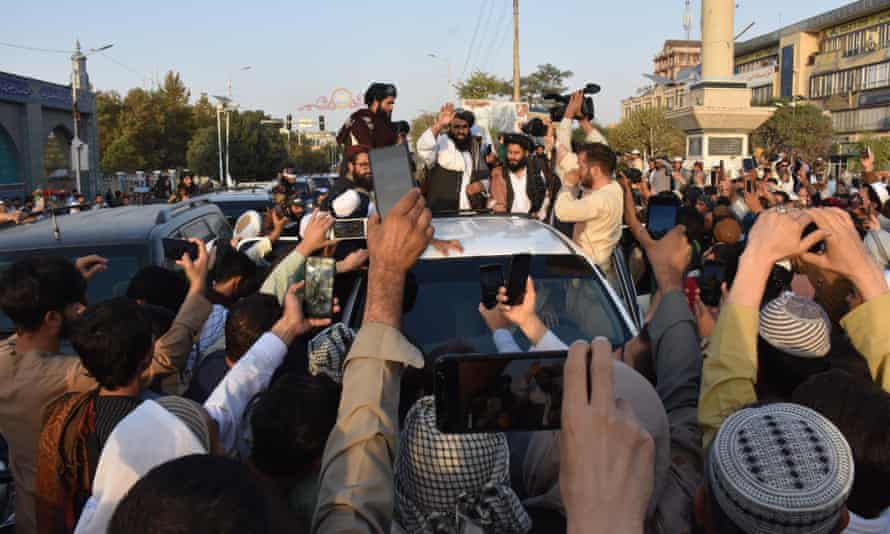
Early in 2013, Abu Idrees – who had by then obtained the title of a mawlawi, or highly qualified Islamic scholar – was summoned by senior Taliban commanders in Quetta. They asked him to head back to Afghanistan to organise Taliban resistance in the north around Mazar, and to expand the movement, especially among the Turkmen, Uzbek and Tajik populations. As an ethnic Turkmen, a former Talib, and a mawlawi, Abu Idrees was the perfect candidate for the job.
By this point, more than a decade since their defeat, the Taliban had changed the way they presented themselves to the wider world. In 2013, they opened a quasi-embassy in Doha and made efforts to portray the Taliban as an all-Afghan national liberation movement. In truth, the leadership remained overwhelmingly Pashtun, but the organisation needed to expand the insurgency, drawing into their fold the other ethnic communities that had once formed the backbone of the resistance to the Taliban.
Thirteen years after he had fled Afghanistan, Abu Idrees slipped back across the border and made a base for himself in the mountainous region outside Mazar. He found that there were already a few Taliban groups active in the area, but they were scattered, and the area under their control was limited. They were no match for the Afghan army, police and local militias. So, rather than beginning his mission with military operations, he started by spreading the word in the area, moving from one town to another – Char Bulak, Balkh, Sholgara – establishing contact with former Taliban sympathisers and recruiting new ones. “We went from house to house, and we spoke to the mullahs of the mosques and madrassas,” Abu Idrees told me. What helped him win favour with the locals was the cruelty, corruption and bigotry of the local warlords and their militias. “That is why the mujahideen succeeded here,” he said.
Over the next six years, Abu Idrees and other Taliban commanders led their men on military operations, harassing government posts and attacking government officials. They set up a shadow government that was the de facto ruling power in the countryside, levying taxes from farmers and businesses and administering Taliban law. The Taliban presence in northern Afghanistan expanded, gradually encroaching on Mazar itself until, by late 2018, they were no more than a couple of miles from the city’s outskirts, where they waited while their leaders negotiated a peace deal with the US.
Jawhar, the head of Mazar’s religious police, who sat next to Abu Idrees in the police station when I visited, had been among the men who had fought under Abu Idrees’s command to retake Mazar for the Taliban. He came from the same area as his commander, but unlike Abu Idrees, Jawhar, now in his 30s, had spent most of his life living under the rule of the new “democratic” Afghanistan.
Jawhar’s journey began when he was a teenage student in a small madrassa in Mazar, tucked down a dusty lane between walled pomegranate and mulberry orchards, and known for its extremist rhetoric. “Some of our teachers in the madrassas had connections with the Taliban, and I wanted to join,” Jawhar told me. But after 2001, he said “there weren’t many active Talibs in Mazar – only a few who showed resistance to the corruption”. These people helped inspire Jawhar to join the movement later.
In 2011, Jawhar travelled to Waziristan in Pakistan, where he spent two years fighting against the Pakistani state. After the Taliban had become established in the north of Afghanistan, under Abu Idrees, Jawhar’s commander in Waziristan told him to take up the fight back home. “My target was America and Americans, but before those Americans, the Afghan army was standing in the frontline,” Jawhar told me. “If they did not have the Afghans with them, the Americans were like the blind,” he said. “So I wanted to hit, cripple, or blind this eye.”
He fought in the hills and mountains in his district, not far from his home town. “We could only go to the mountains that were under the control of the Taliban. We kept moving – one night here, the next elsewhere. We were often hungry and thirsty. Sometimes villages gave us bread that we dried and ate for a month or two, or we made biscuits by frying wheat or maize, and we were eating them for months, but sometimes we had nothing but animal fodder and grass.”
When Jawhar spoke about the faith that kept him alive, his large eyes filled with messianic fervour. In 2015, he and nine other Taliban were arrested, after a firefight with a militia that was supported by armoured vehicles and helicopters. He was taken to the local office of the Afghan intelligence service, where he says he was interrogated and whipped with thick cables, then tied to a chair and electrocuted. He was eventually sent to the Pul-e-Charkhi prison north of Kabul. He told me that in Pul-e-Charkhi, he recruited fellow prisoners to the Taliban and organised riots from his prison cell. After nearly three years, he was transferred to the prison at the American airbase of Bagram.
Torture and mistreatment of prisoners in American jails helped turn these sites into fertile recruiting centres for future jihadis. “The memories of Bagram are hard on everyone, especially me,” Jawhar said. “We were three to five in each cell, we had no mattresses and we slept on the concrete floor. I became the imam of my cell, and the soldiers were always harder on the imams. Many times they called me to the door and then sprayed my face with pepper spray. Some [guards] tortured us for no reason, while others would find an excuse. In the end, the only reason was cruelty.”
While the Taliban police were issuing judgments in Mazar in October 2021, in a small hotel room near the blue shrine sat Babak, the former commander who had described to me the level of corruption in Mazar under Atta’s rule. He was wondering if the Taliban would respect their pledge of amnesty, or if the normal cycle of revenge and retribution, which had followed every time Mazar changed hands since the mid 90s, would play out as before.
Babak, a Tajik, had first fought against the Taliban in 1998 when they launched a big offensive to capture the city. He commanded a small unit comprised of his relatives and fellow villagers, many of whom had previously fought against the Soviets. Babak and his men had opposed the Taliban’s hardline religious policies, but they had also viewed them as another hostile Pashtun force, after a century or more of incursions into the north. In 2001, Babak had been part of the US-backed force that defeated the Taliban in Mazar. From the late 2010s onwards, as a local government official and a commander, he had seen the Taliban make inroads into rural communities.
He spoke honestly and candidly, his voice soft and subdued, as he stared at a plate of raisins on the floor in front of him, like someone trying to come to terms with a death in the family. He said the people of the region had been allowing the Taliban to come into their villages, and providing them with shelter, accommodation and ammunition, as a kind of revenge against the weak and distant central government, and as protection against the corrupt local political powers. “If you were a poor villager and didn’t have connections in the government, you would get a huge punishment for a minimal crime. Your land could be easily seized by someone with connections. But in the Taliban law, villagers were assured the safety of their lives and property. The Taliban were solving problems very quickly; that’s how they collected many people around them in the past two years, and they were even influencing my own relatives.”
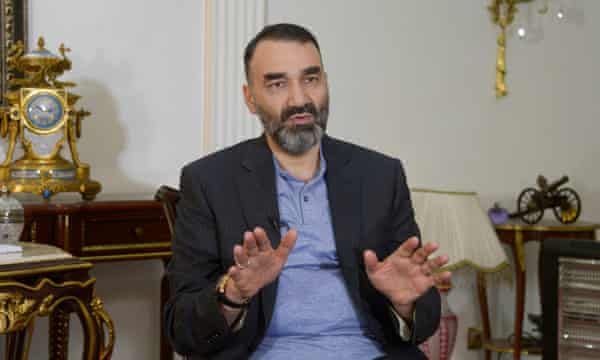
In 2020, after the Trump administration announced its intentions to withdraw, the Taliban campaign intensified, and the security structures of the Afghan government began to crumble. Soldiers went months without being paid their salaries, and those stationed at isolated bases were sometimes left with little military support. “When soldiers were asking for help during battles, or when they were besieged for days without food and ammunition, we would lie, and tell them that aid was on its way and that they must wait,” Babak said.
“I had 100 soldiers in my group, but they were not getting their wages. Even I sometimes had to borrow money. Soldiers were forced to sell their ammunition. The Taliban were buying it. Sometimes they were even buying checkpoints or military posts from the army and police officers. They would hire someone inside bases to gather information and convince the soldiers not to fight,” he said. “In the last days, the soldiers just stopped fighting.”
He paused for some time, before adding: “We were the ones who crashed the government because of the corruption. The Taliban didn’t capture it, we brought it to collapse. We couldn’t fight, we sold it.”
For the first time in Mazar’s long history of war, defeat was not followed by massacres. Babak and other commanders credited the Taliban’s new pragmatism for their quick victory. “In the last few days, a new politics of diplomacy was conducted by the Taliban that affected us a lot – they declared amnesty for everyone, releasing captives and prisoners and giving them money, around 5,000 afghani [£40].”
Abu Idrees said that once the warlords fled to the border, all resistance had collapsed. “When we decided to take the city, they showed some resistance, but after just two or three days, when the soldiers saw their leaders escape over the border, they left without fighting. Some surrendered, and others just went home.”
When I was in Mazar, there were few signs of the war that ended the US’s 20-year adventure in Afghanistan. The real scenes of the disaster engulfing Afghanistan could be found 120 miles further to the west, in small tent settlements near the border with Turkmenistan, in Faryab province. The inhabitants had fled their villages, which had been devastated by war and drought, to live here.
Early one morning, blue smoke from open fires hung over a dozen or so scattered tents in one of these settlements pitched in the middle of a wasteland. Some of the tents were made of UNHCR tarpaulin, others were made of black canvas and plastic sheets sewn together. A goat or two milled about inside an animal pen, which had been constructed from a few thorny shrubs, sticks and pieces of fabric. Open latrines were scattered across the land, and a group of men gathered in front of one tent, mixing mud to build a shelter for the coming winter.
The local Taliban official had informed them that they wouldn’t receive any aid until they went back to their village, but the men had no means to return, they said, and there was nothing there for them. They had spent all the money they had a long time ago. They had to rent the tents from the owner of the land, and none of their sons and daughters went to school, because they needed the children to work. The men had been working as day labourers or porters in the local market, emptying trucks loaded with wheat sacks, but the war and the subsequent freezing of Afghanistan’s assets caused the economy to collapse, affecting everyone from university professors to day labourers. Without any jobs for the men, it was now only the barefoot children who earned tiny sums each day from collecting plastic bottles for recycling.
One emaciated man with deep wrinkles and sallow skin said last year he fell sick and had to go to Pakistan for medical treatment, so he took a loan from the landowner with a high interest rate. When the harvest failed again, he couldn’t pay back the loan. Pointing at his two young girls, he said he betrothed them to the landowner in return for the debt. “They belong to him now,” said the father. “He can take them now, or if he is kind, he will leave them with us until they are 12.”
The two girls, eight and nine years old, stood next to each other, dressed in long blue shirts and pants. The elder sister had black eyes and a shawl wrapped loosely around her small head and shoulders. With her mop of brown hair, large eyes and crooked smile, the younger was shy and hid her face in her sister’s neck. With faces smeared in dust and feet caked in mud, they watched silently the men who ruled over their lives.
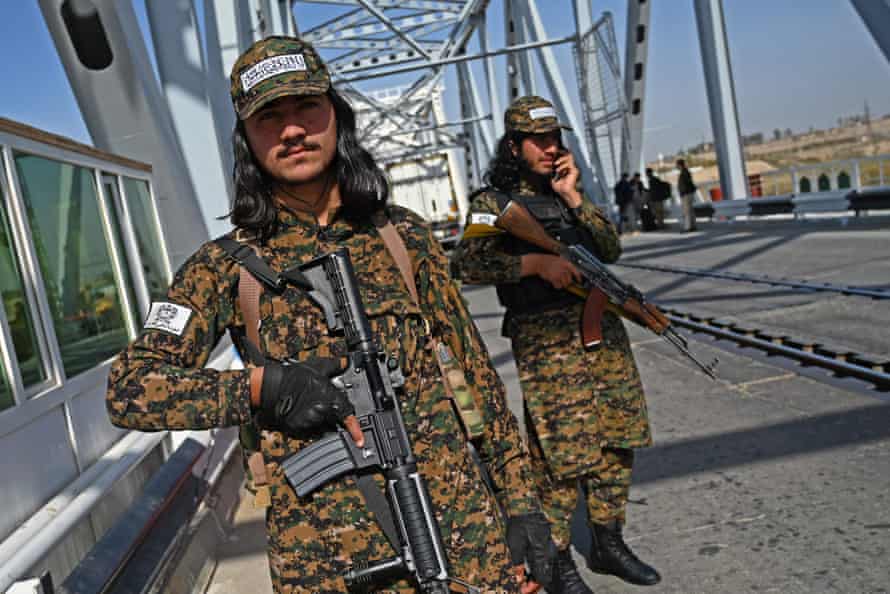
Another man pointed at his daughter, who sat alone, squatting on the ground, her back resting on one of the tents. She, too, was married to pay for her father’s loan. She was nearly 12 and the family she was effectively sold to might claim her any day now. Such is the desperation of starving families, that children become the last asset.
In war, as in the drought, children were the first to pay the price. Almost all the Taliban fighters I met had been recruited between the ages of 12 and 15, and they were often thrown into battle with little or no training. “I was 13 when I joined the movement,” said a young lean fighter who I met outside Abu Idrees’s compound. “I was given training for two days, and then I went with my brothers to war. We ambushed two police trucks. I closed my eyes and fired. I was very scared. When I opened them I saw nine policemen dead. It was my first time seeing dead people, but thanks to Allah, we came out victorious. After that, my elders gave me two months of military training. That was seven years ago, now I am 20 and we liberated our lands. I want to go back to my village and get married.”
Back in Mazar, the lights of the shrine glittered in the early evening, as vendors lined up their new merchandise on wooden stalls: white Taliban flags, grainy posters and mugs bearing the picture of the late Mullah Omar and the Taliban’s current leader, Haibatullah, laminated cards and badges carrying the movement’s slogans. But just a few blocks away, a desperate scene was unfolding. Locals were selling their household furniture to feed their families. Sofas, fridges, kettles, stoves, gas cans, plates and pots, along with coloured mattresses and bed sheets, were all piled up in the middle of the street.
One 35-year-old man, who had loaded his household belongings into the back of a motor rickshaw, told me he had run a successful car wash before the fall of the city, but now his family were hungry. All his relatives had lost their jobs, he said. He pointed at his possessions: a carpet, an electrical fan, some pots, an aluminium crutch. “These are worth 10,000 afghanis, but no one is willing to pay even 2,000.”
On the other side of town from Abu Idrees’s police compound, a woman named Suhaila was hiding in the house of a relative. She had recently received threatening phone calls from the Taliban, who had accused her of blasphemy, and motivating women to contravene Sharia teachings, because she had run a government department in charge of empowering women. It was the third time, in the last 30 years of Afghan civil wars, that she had to flee her home in search of safety.
Suhaila’s husband, with whom she had two children, had been executed by the Taliban when they conquered Mazar in 1998. After their victory, Taliban fighters on the back of pickup trucks drove through the streets, opening fire at anything that moved. Then they began to comb the city, going from house to house, searching for men from Afghanistan’s Hazara minority, castrating and then executing them in retaliation for the slaughter of Taliban fighters the previous year. The war in the north became increasingly sectarian, as the Taliban massacred civilian Tajik and Uzbek villagers.
The Taliban, who called Mazar a centre of jahiliya – a reference to the Islamic term for the age of ignorance that preceded the revelation of the Qur’an – set about exacting terrible revenge on its people. Schools and universities were shut, a severe purdah was imposed on women, and men were herded at gunpoint to local mosques at prayer time.
Suhaila and her two infant daughters, along with other family members, headed into the mountains in the Charkent district, and built a shelter from tree branches, scraps of fabric and plastic sheets. She survived on meagre amounts of food aid distributed by NGO workers, scavenged wood to burn and begged the shepherds for milk. But she could see that her children were starving, so she put on her burqa and, carrying her two girls, walked back to the city. A relative told her that her home had been confiscated by the Taliban because it had belonged to an enemy commander.
She moved from one relative’s house to another every few days, until a cousin found her a small room to rent. Suhaila remembers these days of Taliban rule as one long horror. After working as a cleaner, she eventually found a job with a foreign NGO distributing aid and providing widows with vocational training. Sometimes the NGO paid her in flour, as money was becoming worthless. As she walked back and forth to her room, she was often admonished by the Taliban fighters, who spat on her and hit her with sticks, because she was a woman walking alone without a male guardian.
Three years later, in 2001, when the US military backed the warlords in their bid to recapture the city, Suhaila had cowered in her apartment, hugging her daughters, as bombs and shells exploded outside. When the Taliban were defeated, she emerged, feeling as if she had been released from prison. She went on to join the country’s nascent civil service. Building on her experience as an aid worker, she ran programmes with the help of the international community to distribute aid and help women build their shattered lives, now that they were free to work, and study. Her two daughters were finally able to begin attending school.
Now, with the Taliban back in power, Suhaila had again gone into hiding. “Even breathing is becoming difficult for me,” she told me. While female teachers were allowed to go back to work, she said most of the government employees like herself were told to stay home. Some social workers and activists were being arrested and disappearing. Twenty-three years after the Taliban killed her husband, she finds herself in the same situation of being unable even to go to the market and do her shopping because she has no male guardian. “Whatever we had achieved as women in the past 20 years is gone.”
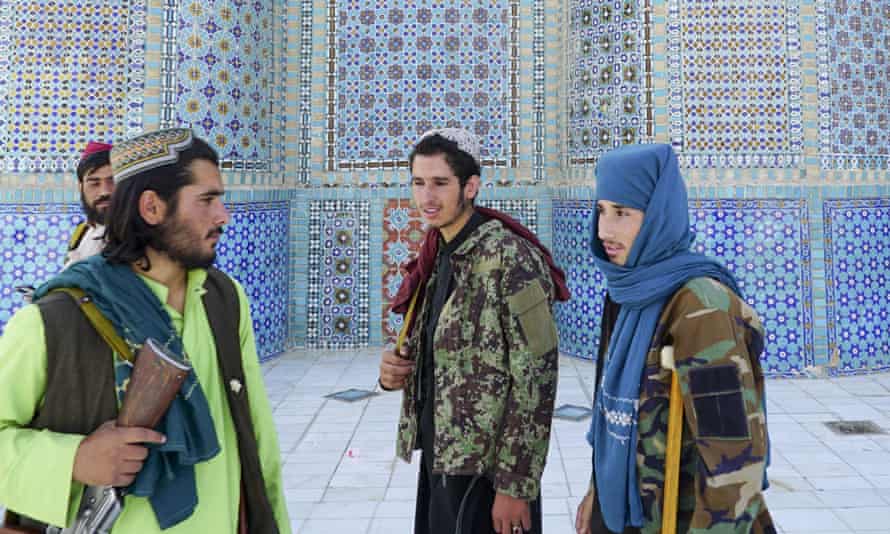
I contacted her in her hiding place and asked her if she thought the Taliban had changed. “I am very sensitive even to the word Taliban,” she said in a voice message. “They are the same Taliban, but they are aware that if they try to implement any of their real policies, people will protest and post on social media. In their first government they didn’t care about what the international organisations or the media said, but now they are very sensitive about their public image. Activists and human rights workers are being disappeared in the middle of the night. The Taliban are desperate for recognition from the international community, so whatever horrors they do, they do in secret.”
One night I received a call from Jawhar, who asked me to meet him in a government compound that had become a base for his men. It was cold, and the streets were nearly deserted. A haze muffled the orange street lights, and a few Taliban fighters stood shivering at their checkpoints. When I arrived, Jawhar was sitting among dozens of other fighters, talking with another commander, a fellow former prisoner from Bagram. They were friendly and offered me hot green tea.
Shortly after, Jawhar led me into a small office where he sat on a metal chair, under a white neon light. His long hair curled over his ears, and the long tail of his turban flowed between his legs. His smile showed a row of straight white teeth. I asked him about his job as the head of the religious police in Mazar. Were they going to resume their hardline policies, such as banning women from walking in the streets alone and forcing men into mosques?
“No, now we are different,” he replied. “Now, we are focusing on spreading our message through the imams. We tell the people there are too many women without Islamic hijab. I told them, dear sisters, don’t come out like this. I didn’t hit or beat anyone, although I have permission to beat or handcuff or do anything I want, but I haven’t arrested a single person or used force on them. I use good language, soft behaviour, friendship and love. I told them, I came out to defend you, and my brothers and sisters, defending your dignity is my duty.”
I told him I had been in Mazar for a few days, and I hadn’t seen a single woman who wasn’t wearing a hijab.
“Yes, but this hijab is not good; they still show their faces,” he answered.
But even according to the most conservative interpretations of the Sharia, women are allowed to show their faces and hands, I said.
“Yes, but then bad things happen to men when they look at the women.”
And why don’t the men not look at women?
“Oh, but that is hard. Women must cover.”
As an example of his soft new policies, he told me that a few days earlier, he had raided a basement where a group of people were gambling. Rather than arresting or assaulting the gamblers, he said that he had told them: “‘Before it was the Americans who were promoting such bad things, but now, my brothers, we are living in the Islamic Emirate. Come to madrassas to learn about your religion.’ I told them that it’s their first time, so I won’t say anything. The second and third time, I would be forced to behave in a way that they won’t like.”
I thanked Jawhar for his time and was about to leave, when he looked at me with his small, slightly frenzied eyes, and asked me in his halting Arabic, which he had picked up from “Arab brothers” in Bagram, if I had met “brothers from al-Qaida” before. I said yes – in Iraq, Syria and Yemen.
“Have you asked the leaders of the Emirate [Afghanistan] and the Taliban what they think of al-Qaida? Do you think the Islamic Emirate are supporting al-Qaida?”
I said according to their public statements, they had emphasised that they were not dealing with them. Under the conditions for a peace deal with the US, the Taliban were supposed to be operating only within Afghanistan.
“How can they say this? Jihad is not limited to a specific time or specific geography,” he answered. “How can you limit jihad to Afghanistan only, does the sharia approve of that?”
I don’t know, I said, you are the mawlawi. We laughed.
“Yes, thanks to God, I am a scholar, and while I was in prison in Peshawar, Pole Charkhi and Bagram, I read many books. I abide by the ruling of our leaders and emirs, but, from my point of view, we need to reach out to our dear brothers in Iraq, Syria and Palestine. They are our brothers, and like us, they are also mujahideen for the sake of Allah, just as I was a mujahid. I want to reach out to them, and I want to go and continue my jihad in Iraq, Syria and Palestine, but now the time is difficult, and I can’t ask our leaders for permission to travel. But all the Taliban, and myself especially, are yearning to fight the jihad against the infidel and the hypocrites like the government of Iraq, and to support our brothers against the infidels. In my heart I love them.”
Then how about the Pakistani Taliban, I asked – which the leadership in Afghanistan had declared that they don’t support. “Oh, they are our brothers,” he answered instantly. “But according to the current political situation, it’s not in the interest of the Islamic Emirate of Afghanistan to declare its support for them openly. But they are our brothers, and we stand shoulder to shoulder, we share the same politics and intents, but we can’t declare that.”
As he talked, he grew increasingly fervent. “In my heart and soul, I love mujahideen of al-Qaida, and I tell my Muslim brother to carry your sword and fight the infidels, and to follow the saying of the prophet, that jihad will continue until judgment day.”
This article was amended on 18 February 2022 because an earlier version used the spelling Mazar-i-Sherif, rather than Mazar-i-Sharif. This has been corrected.

No comments:
Post a Comment